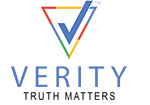Blockchain Technologies
Verity One Licensing Unit VLU "V"

A Collaboration of Titans
Verity License Unit (VLU) "V" Integration with Hyperledger, Polygon (MATIC), Ripple (XRPL), and Hedera (HBAR)
The Verity License Unit (VLU) "V" marks a significant evolution in blockchain technology by integrating with leading platforms such as Hyperledger, Polygon (MATIC), Ripple (XRPL), and Hedera (HBAR). This integration moves beyond the traditional Verity One License Unit framework, introducing a new level of transparency, traceability, and security in supply chain management by leveraging the distinct strengths of these blockchain technologies.
Blockchain Technologies Integrated in VLU
The Verity License Unit (VLU) utilizes a diverse range of blockchain technologies, creating a comprehensive and robust ecosystem that enhances supply chain operations.
-
Hyperledger: An open-source blockchain platform designed for enterprise-level blockchain solutions. Hyperledger provides modular tools and libraries that facilitate the development of customized blockchain applications, enabling secure and efficient business transactions. Additionally, Hyperledger offers privacy-focused off-chain validation, ensuring that sensitive business data remains confidential while still benefiting from blockchain's security and transparency.
-
Polygon (MATIC): A high-performance Layer 2 scaling solution for Ethereum, Polygon (MATIC) is well-adopted and provides fast, efficient, on-chain validation and transparency. Its low-cost, high-speed transactions make it a robust platform for scalable supply chain solutions. Compatible with the Ethereum Virtual Machine (EVM), Polygon (MATIC) supports smart contracts and decentralized applications (dApps), ensuring seamless integration and functionality within the VLU ecosystem.
-
Ripple (XRPL): Recognized as a new standard in cross-border payments, Ripple (XRPL) offers currency independence and operates with zero political resistance. Ripple (XRPL) provides a mature blockchain platform that facilitates fast and cost-effective international transactions. This integration expands VLU's capabilities in global supply chain operations, ensuring seamless and efficient payment processing across borders.
-
Hedera (HBAR): A public distributed ledger known for its high throughput, low transaction costs, and eco-friendly consensus mechanism. Hedera (HBAR) supports secure and transparent supply chain management with its unique consensus algorithm, enabling fast and scalable transactions. Additionally, Hedera integrates the Open Source Guardian Program, which enhances the platform's ability to support Environmental, Social, and Governance (ESG) initiatives by providing a framework for creating and managing verified, auditable data on environmental impact.
- Ethereum ERC-20 & ERC-1155: These technical standards on the Ethereum blockchain facilitate the creation and management of both fungible and non-fungible tokens. The ERC-20 standard guides token development within the Ethereum ecosystem, while ERC-1155 enables the efficient handling of multiple token types under a single contract, optimizing resource use in complex supply chains.
Integration with Leading Blockchain Platforms
The integration of the Verity License Unit (VLU) "V" with Hyperledger, Polygon (MATIC), Ripple (XRPL), and Hedera (HBAR) brings several distinct advantages:
- High Performance and Scalability: Polygon (MATIC) and Hedera (HBAR) offer high transaction speeds and throughput, essential for managing the dynamic and complex processes within supply chains. These platforms ensure that VLU operates with the speed and efficiency required for large-scale operations.
- Cross-Border Payment Efficiency: Ripple (XRPL) enhances VLU’s capability by enabling fast, reliable cross-border payments. This integration ensures that international supply chain transactions are processed efficiently, reducing costs and enhancing operational efficiency.
- Security and Transparency: Hyperledger’s enterprise-grade blockchain technology, combined with Hedera’s secure consensus mechanism, ensures that VLU provides a transparent and tamper-proof environment for supply chain management. This multi-layered security approach mitigates risks associated with fraud and tampering.
- Eco-Friendly Operations: Hedera’s consensus algorithm is designed to be energy-efficient, supporting sustainable business practices by reducing the environmental impact associated with traditional blockchain networks.
Benefits of VLU’s Multifaceted Blockchain Approach
The Verity License Unit (VLU) "V" utilizes a multifaceted blockchain approach, providing the following key benefits:
- Transparency: The integration of decentralized ledger technologies across multiple blockchains ensures that all transactions are secure and transparent, allowing stakeholders to monitor supply chain activities with confidence.
- Traceability: VLU’s comprehensive tracking capabilities address issues related to product authenticity and counterfeiting, providing detailed oversight throughout the supply chain.
- Security: The combination of Hyperledger, Polygon (MATIC), Ripple (XRPL), and Hedera (HBAR) ensures a highly secure supply chain environment. This robust security framework protects against fraud and tampering, ensuring the integrity of all transactions.
The Verity License Unit (VLU) "V" represents a significant advancement in blockchain-based supply chain management. By integrating with Hyperledger, Polygon (MATIC), Ripple (XRPL), and Hedera (HBAR), VLU enhances the transparency, traceability, and security of supply chain operations. This innovative approach not only supports sustainable and cost-effective business practices but also sets new standards in the blockchain and supply chain management landscape. Through this integration, VLU demonstrates a commitment to leveraging the full potential of blockchain technology to drive efficiency and reliability in global supply chains.
For more information on the V Token
https://verity.one/v-verity-licensing-unit-token